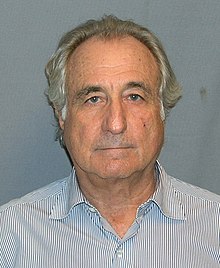| Source: Forbes.com |
As has been well documented, she was able to find backers and prominent leaders to join her board, mostly older men either outside the health care field or not currently practicing.
They should have known better.
That includes Walgreens - too anxious to close the deal. FOMO!
Google and others knew better than to invest. In interviews with Holmes, the Google folks were never presented the evidence they needed to believe that the technology would work.
Reminds us a little of this man.
 |
| Source: Wikipedia |
In order to avoid dangerous situations, we do not need proof. We only need enough information to convince ourselves by inference that something is not right. To be convinced by claims of a breakthrough technology, we need substance - evidence, not happy talk and a black turtleneck, even with the confident speech with the appropriate hand gestures and head tilt.
More than anything else, this blog is about making inferences from a limited set of data on the statements and actions of individuals and groups, especially, but not exclusively in the political arena. We then observe whether the political commentators appropriately consider these arguments or whether they instead are sidetracked by the claims made by the political actors. We find the objective press custom of addressing statements or actions of one side of the aisle by asking the other side of the aisle what they think to be an inadequate response to events. We also find the objective press practice of reporting on the actions of one side of the aisle based on statements by that side (the first half of the "he said/she said" reporting process) almost at face value instead of directly reporting what those actions represent to be inadequate and therefore inaccurate reporting. The voter suppression efforts of Republicans throughout the country are an example of this.
No comments:
Post a Comment